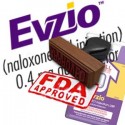Drinkers Warned About Risk Of ‘Shakes’
People who consume three alcoholic drinks every day double their risk of getting the “shakes” in later life, researchers have found.
Essential tremor, a common neurological disorder, affects an estimated 650,000 people in the UK.
Although there are a number of factors which can cause the condition including an overactive thyroid and Parkinson’s disease, alcoholics frequently develop symptons.
According to new research, published in the Journal of Neurology, Neurosurgery and Psychiatry, alcohol consumption could increase the risks of developing the disorder.
The study, conducted in central Spain, looked at the drinking patterns of a group of 3,285 patients aged 65 and over.
Seventy-six out of the 3,285 participants developed essential tremor, which causes involuntary movement, in a three-year follow-up period.
Of the group, 1,838 were classed as alcohol drinkers while 1,447 were non-drinkers.
When the two groups were compared, those who had drunk regularly for a long period were far more likely to develop essential tremor.
The study found that those who drank three or more units of alcohol per day doubled the risk of developing the condition compared with non-drinkers.
Even those who had just one or two drinks a day had a 30% increased risk of getting the “shakes”.
In England, ten million people are thought to drink more than the Government’s recommended limits of two to three units a day for women and three to four for men.
More than 420,000 people are admitted to hospital each year because of excessive drinking.
In England, almost 1.6 million men are considered to be “high risk” drinkers, downing more than 50 units a week, while over one million women admitted to consuming 35 units every week.
Professor Ian Gilmore, chairman of the Alcohol Health Alliance, said: “Mental disorders account for the largest number of alcohol-related hospital admissions.
“However, insufficient attention is paid to the link between alcohol misuse and neurological illness.
“Equally, healthcare professionals must also be trained to more accurately identify cases where patients are at risk of long-term damage due to their drinking habits.”
source: Sky News

